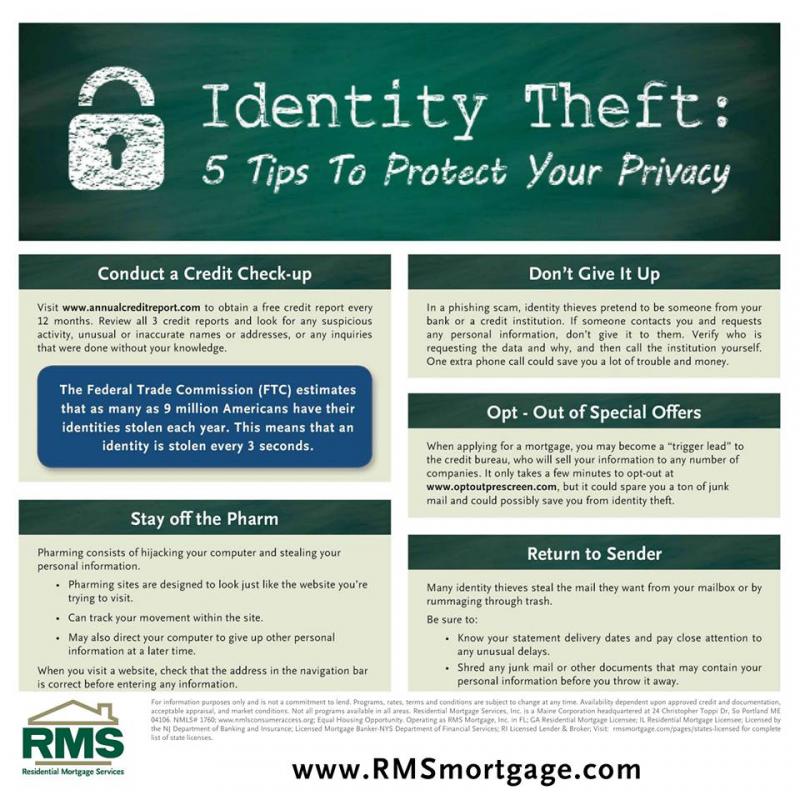It’s safe to say in today’s world that nearly everyone knows someone with an identity theft nightmare story to share. As technology takes steps forward so too do criminal minds. And while there’s no single answer to protect you from identity theft, there is plenty that you can do to minimize your risk and position yourself to react.
Here are 5 tips to protect your privacy:
Conduct a Credit Check-up
Visit www.anualcreditreport.com to obtain a free credit report every 12 months. Review the reports from all 3 credit bureaus and look for any suspicious activity, unusual or inaccurate names or addresses, or any inquiries that were done without your knowledge.
Stay Off the Pharm
“Pharming” is a term that describes hijacking your computer or hand-held device and stealing your personal information.
- Pharming sites are designed to look just like the website you’re trying to visit.
- Can track your movement within the site, such as entering personal information and passwords.
- May also direct your computer or device to give up other personal information at a later time.
When you visit a website, especially if you are taken there by a button or link, check that the address in the navigation bar is correct before entering any information. Look for misspellings. If in doubt, close the browser and start fresh with a new one, typing in the address or using an old and trusted bookmark of the site you wish to use.
Don’t Give It Up
In a phishing scam, identity thieves pretend to be someone from your bank, credit institution, etc. If someone contacts you and requests any personal information, don’t give it to them. Verify who is requesting the data and why, and then call the institution yourself using a phone number you look up separately. One extra phone call could save you a lot of trouble and money.
Return to Sender
Many identity thieves steal the mail they want from your mailbox or by rummaging through trash. To protect your privacy, be sure to:
- Know your statement delivery dates and pay close attention to any unusual delays.
- Shred any junk mail or other documents that may contain your personal information before you throw it away.
Opt Out
When applying for a mortgage or other kind of loan, you may become a “trigger lead” to the credit bureaus, who then sell your information to any number of companies. It only takes a few minutes to opt out at www.optoutprescreen.com, but that action could spare you a ton of junk mail, thereby possibly saving you from increased risk of identity theft. There may be some processing time from when you opt out to when you’re officially removed from the list, so try to make that one of the first things you do when you start the home buying or refinancing process.
The Federal Trade Commission (FTC) estimates that as many as 9 million Americans have their identities stolen each year. This means that an identity is stolen every 3 seconds on average.
With these five practices you are already taking steps to protect your privacy and identity. The most important factor in keeping yourself safe is to remain aware, and to trust your instincts if something doesn’t feel right. Use common sense and, when in doubt, take a few extra steps to make sure you’re dealing with the right people. If it’s insisting on calling a company back, they’ll understand. Companies doing business in today’s world have to be just as aware of potential privacy threats, or possibly more aware of them, as you.
This article brought to you courtesy of Tim Hidell, RMS Mortgage. For full article, please click here.
The Debbie Reed Team is located at 319 Rehoboth Ave., Rehoboth Beach, and is open seven days a week (9am-5pm Monday-Saturday, and 10am-3pm Sunday). For more information about Debbie Reed and her team, please visit www.debbiereed.com or call 302-227-3818.




















































